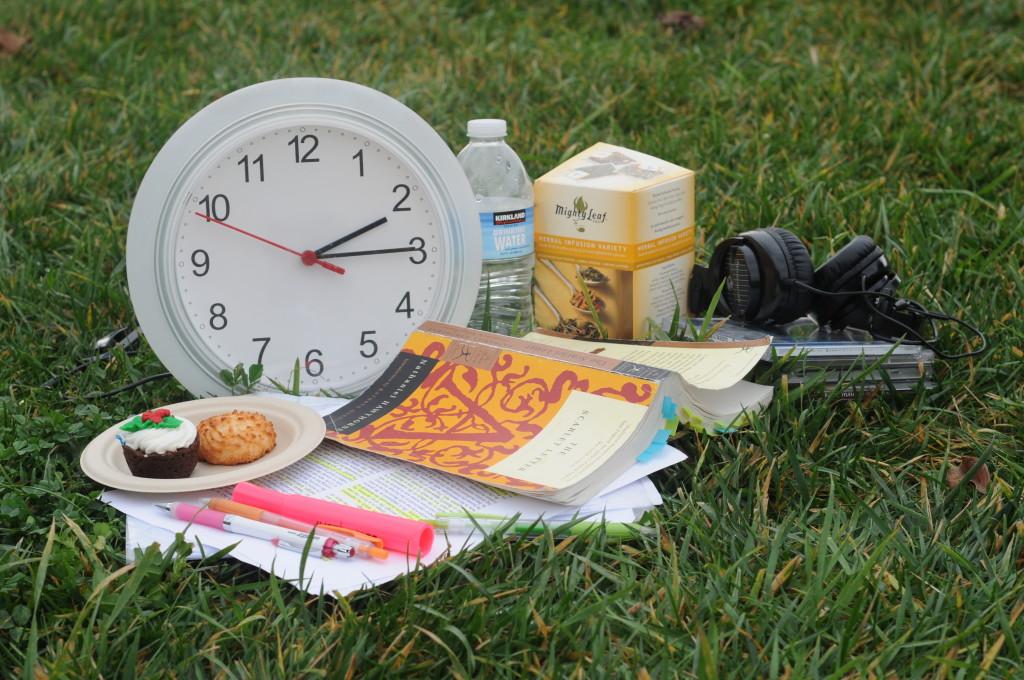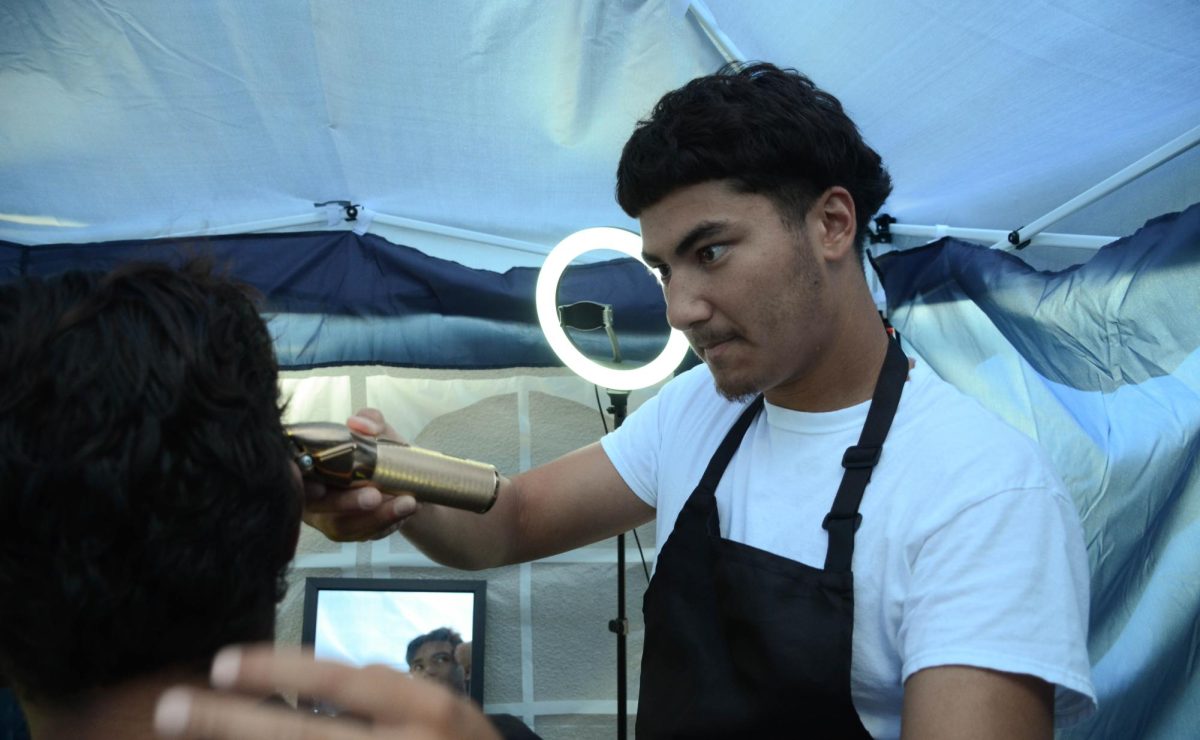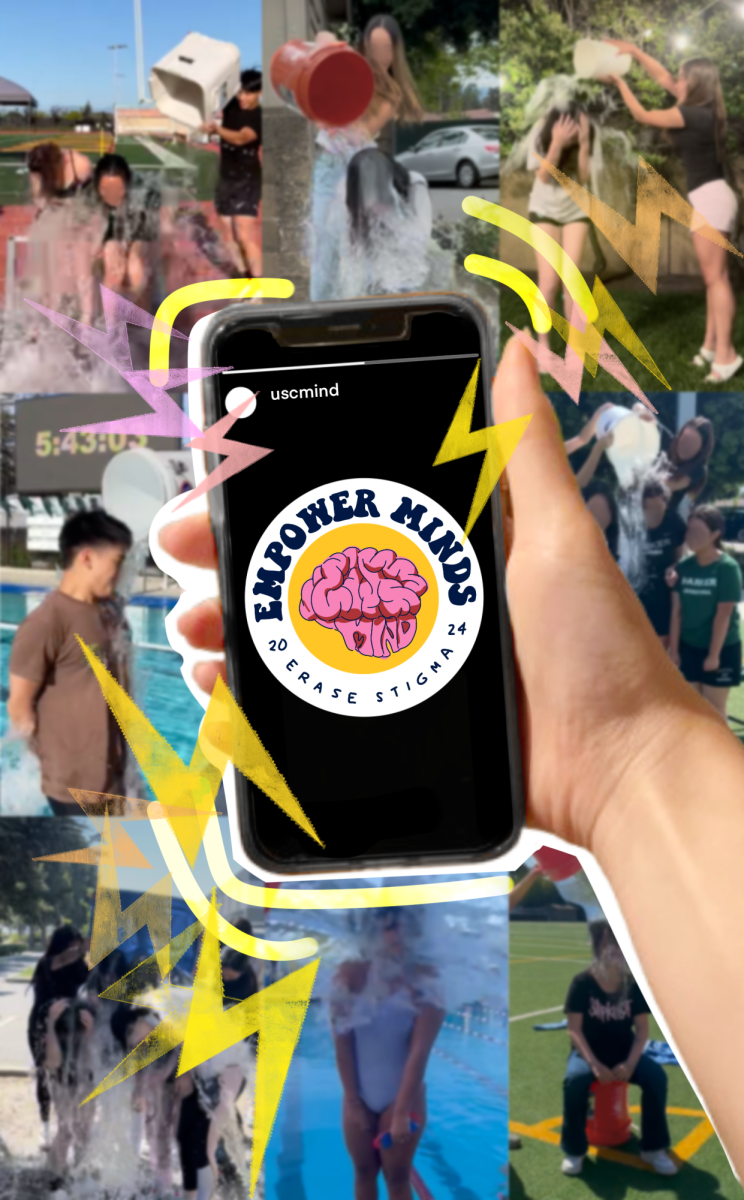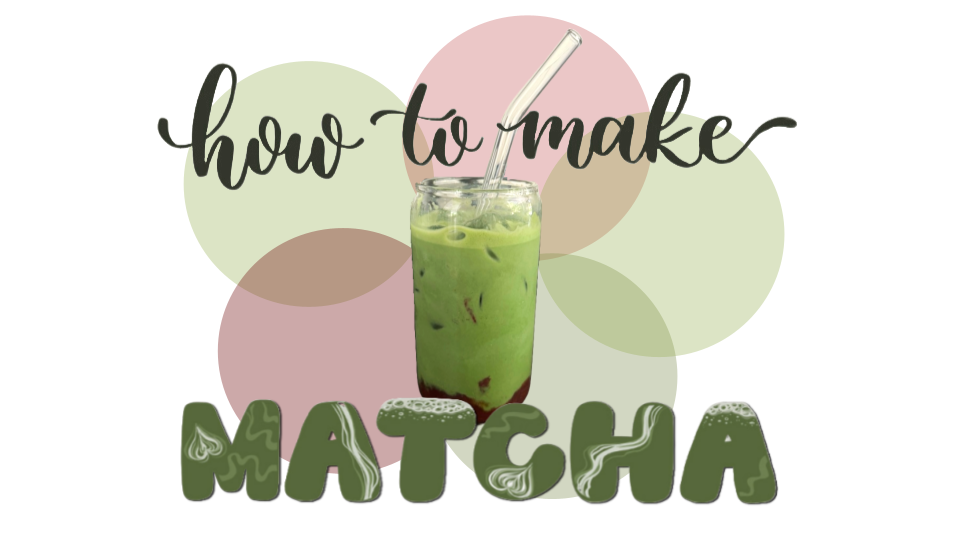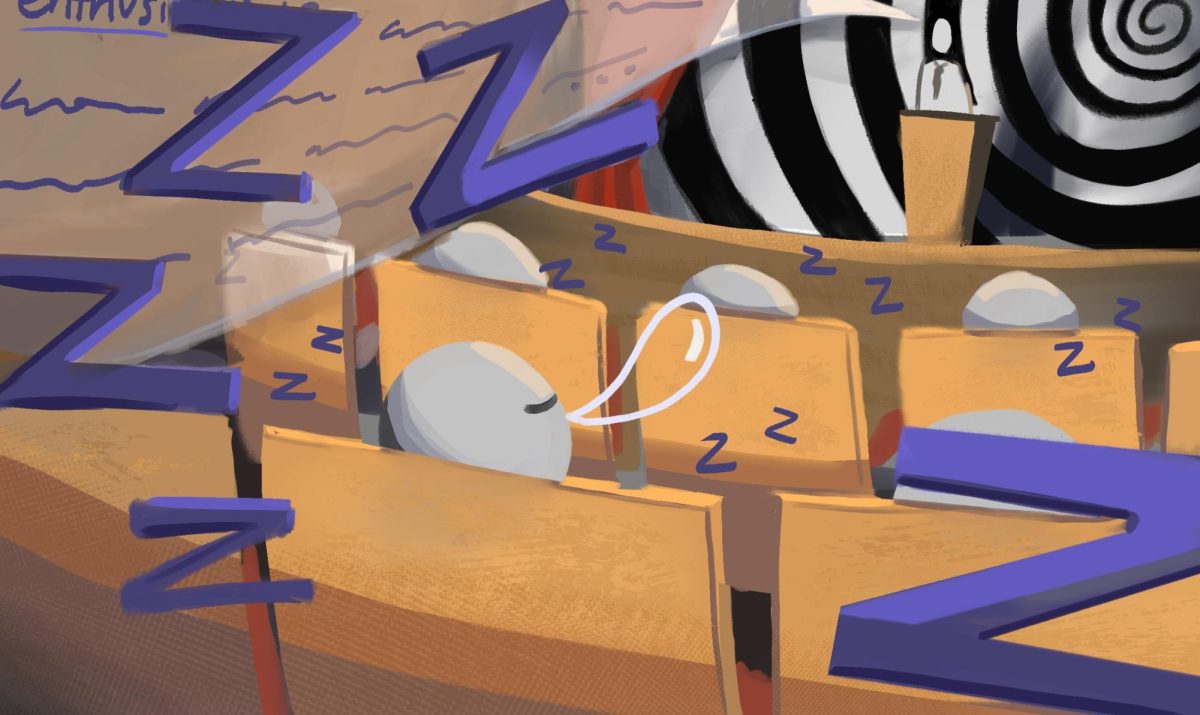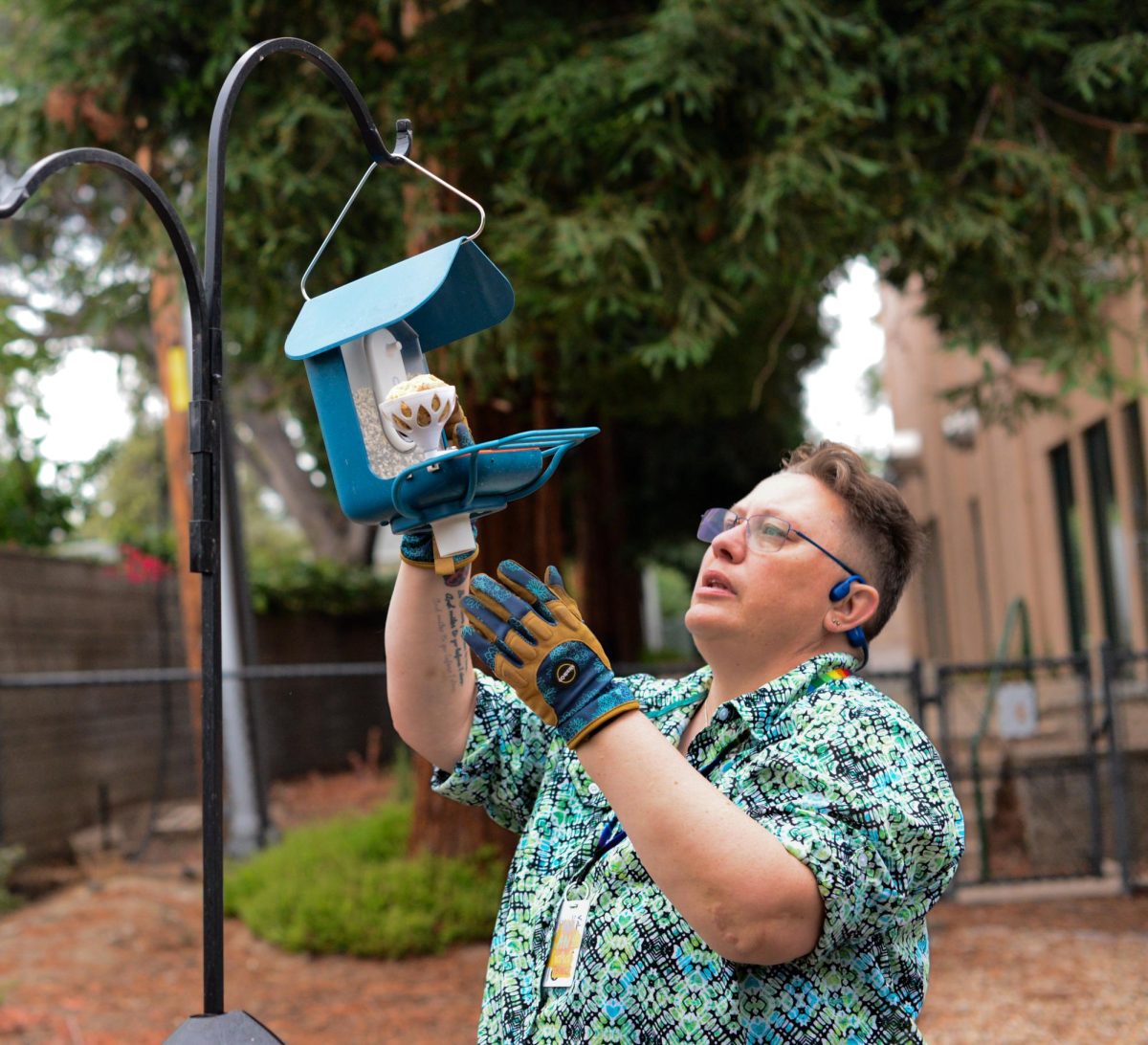Two weeks of blissful freedom from school seem so close, yet so far away. For freshmen, sophomores, and juniors, one last hurdle remains.
For many, this week’s comprehensive final examinations will bring days of inevitable panic, cramming, and stress.
However, not all of this stress is inescapable. Academic counselors Chris Colletti and Lori Kohan and Nurse Clare Elchert provide some tips to help lift a world of stress off students’ shoulders.
One: Keep things fun!
Studying does not have to be a nightmare. According to Colletti and Kohan, with self-restraint, interspersing breaks during focused study can improve the efficacy and efficiency of studying. They suggest reserving one hour for fully concentrated work and then 10 to 20 minutes just to relax.
“[Breaks] let you feel a little more relaxed and use a completely different part of the brain,” Kohan said.
Colletti agreed. “If everything’s just work, your stress level will grow really tense,” he said.
The key, they say, is balance: too easily, people go online or sit in front of the television, and before they realize, an hour has passed. Kohan suggested setting a kitchen timer during breaks to avoid “get[ting] lost in whatever you’re doing.”
There are many little ways to break up the blocks of studying. One could chat or phone friends. One could even spend a few minutes lavishing attention on a pet. One could tell stories and laugh with a sister or brother or enjoy a small, tasty reward such as a piece of chocolate.
Colletti and Kohan also find forming study groups with friends a refreshing way to make studying both fun and effective.
“Sharing what you know and talking about it […] by being a teacher and explaining it […] by doing it a different way, brings you to really remember. And it gets… the social component too, which is good,” Colletti said.
He cautioned students not to go out with friends with whom they would easily “lose focus.” When working in groups, students should also alternate work and break time.
Regardless of the method, both counselors urge students to find a way to make studying fun and to find a balance. “We’re high believers of getting interest in there and treating yourself,” Colletti said.
Two: Get moving.
Exercise and movement are valuable ways to break up stretches of studying. “Exercise is key,” Colletti said. “It’s almost a no-brainer.”
Punctuating studying with movement, Colletti said, is a simple and accessible way to “break up the monotony” and to help “regain focus.” Options include brief stretching routines, such as standing up, circling arms, or touching toes; doing sit-ups, push-ups, or jumping jacks; turning up music and dancing; or even going outside for a brief jog around the block.
“Especially when it’s colder, the fresh air out there […] wakes you up,” Kohan said.
Kohan also recommends looking up from the books into the distance to relax the muscles of the eye.
“Sometimes, when you focus for too long, your eyes kind of get blurry [… and] you get lost. Stretching your muscles, including your eye muscles, really can be beneficial,” she said.
Ultimately, the physiological changes that exercise brings make studying more effective.
“[Exercise] stimulates serotonin production in the brain,” Colletti said. “Anything that gets your serotonin up is going to you feel better, and when you feel better, you perform better, no matter what you do. And that’s a life lesson.”
Three: You are what you eat (and drink).
According to Elchert, brainpower requires a lot of calories—the brain uses almost ten percent of the body’s total energy. Thus, students should not enter an exam with an empty stomach.
“If you’re not accustomed to breakfast, don’t eat a big breakfast. But make sure you eat something,” Elchert said.
The choice of food has a large impact on exam performance. The brain runs on carbohydrates, but not all carbohydrates are created equal. Simple, refined carbohydrates such as sugars lead one to experience a burst of energy followed by a rapid collapse, perhaps in the middle of studying or taking the exam.
Complex carbohydrates, on the other hand, such as whole grains and oatmeal, are ideal: taking more time to digest, they squelch hunger and provide energy for longer periods of time. Protein, too, is digested slowly and keeps one full longer.
Drinking enough water is equally as important for successful studying and exam taking and for a healthy life in general.
“Think about how much of your body percentage is just water. Anxiety, depression […] all of those things can be exacerbated if you don’t have enough water,” Kohan said.
As with foods, the choice of beverage is important. Drinks with caffeine and sugar such as Red Bull cause jitteriness and dehydration as well as the highs and subsequent crashes mentioned. Kohan suggests herbal tea or just plain water instead.
“By the time the caffeine kicks in, you’re ready to go to bed, but you can’t go to bed. Better to have a nice glass of water, and then you can actually go to bed when you want to, “ Kohan said. “Eight ounces of water can do wonders.”
Four: Hit the sack.
Getting adequate sleep is essential for effective studying, exam performance, and daily functioning in general. Yet, many teenagers cram past midnight and do not manage to sleep for the recommended eight hours.
According to the counselors, research has proven that studying late at night is simply not as effective as studying in the morning.
“You need to sleep to move information though you’re not actively studying it,” Elchert said.
The information that is studied moves from short-term memory to long-term memory during sleep, so efficiently studying while ensuring those eight hours can actually be more effective than reviewing the entire book the night before and not getting enough sleep.
“There’s too much information, especially for a final exam, for you to be able to cram it into your head in a few hours [the night before],” Kohan said. You may get one question that you wouldn’t have gotten before, but how much do you really actually retain? It’s not like it’s going to be a difference between a C and an A.”
Colletti agrees. “You might as well be sleeping, getting that information from your short- term memory to your long-term memory, which is going to be more beneficial for you,” Colletti said. “Or you cram, and within two weeks the information is gone, which doesn’t make any sense, especially in an AP class […] Why wouldn’t you want to do it right the first time?”
Moreover, an insufficient amount of sleep could cause a headache, which would distract studying and test-taking itself. According to Elchert, students seek the nurses’ aid as early as a few weeks before the actual exams complaining of headaches—mostly due to sleep deprivation.
“Sleep debt accumulates. And kids don’t realize it,” Elchert said.
Saying that she felt like a “broken record,” Elchert called lack of sleep teenagers’ largest problem. By not sleeping enough, “you are doing your body and immune system harm,” she said. “There are no benefits […] only detriment[s],” she said.
Five: Maintain perspective.
Always staying realistic and keeping in mind the big picture can prevent unnecessary pressure and anxiety.
“If you get straight B’s on tests […], obviously there’s material that’s not clear,” Colletti said. “You’re not knowing material at that A level yet, so to even think, ‘I’m going to ace that final’ […] you’re not being realistic with yourself.”
Instead, he said, students should set goals within their usual abilities, keeping in mind the broad range of material final exams include.
Also, performance on one final should not affect performance on a later one.
“You take finals every day [of the week]. If the first final doesn’t go well, that’s okay. Take a deep breath, get yourself refocused, but don’t beat yourself up so much that you get super stressed,” Kohan said. “Just keep going the way you were going, just study the same amount you were going to study.”
Besides, she adds, that was only one exam, and “one final exam can’t really devastate your grade — it’s only 20 percent of your grade at most,” she said.
Both Kohan and Colletti stress that finals are not overwhelmingly important. They urge students to remember the possible outcome of a final.
“For the most part, a final never really hurts a student. Usually, at most there’s a half-letter grade change,” Kohan said. “Think about what would happen if you fail—like F fail… [Your grade] may drop just a half a letter, but so what?”
So, they agreed, finals should not herald panic.
“Finals aren’t there to throw curveballs. […] You’ve seen all the material,” Colletti said.
According to Kohan, hope and peace will come soon. “It really is finite. You have an endpoint, and then you can go off and have your two-week holiday break.”


















![“[Building nerf blasters] became this outlet of creativity for me that hasn't been matched by anything else. The process [of] making a build complete to your desire is such a painstakingly difficult process, but I've had to learn from [the skills needed from] soldering to proper painting. There's so many different options for everything, if you think about it, it exists. The best part is [that] if it doesn't exist, you can build it yourself," Ishaan Parate said.](https://harkeraquila.com/wp-content/uploads/2022/08/DSC_8149-900x604.jpg)




![“When I came into high school, I was ready to be a follower. But DECA was a game changer for me. It helped me overcome my fear of public speaking, and it's played such a major role in who I've become today. To be able to successfully lead a chapter of 150 students, an officer team and be one of the upperclassmen I once really admired is something I'm [really] proud of,” Anvitha Tummala ('21) said.](https://harkeraquila.com/wp-content/uploads/2021/07/Screen-Shot-2021-07-25-at-9.50.05-AM-900x594.png)







![“I think getting up in the morning and having a sense of purpose [is exciting]. I think without a certain amount of drive, life is kind of obsolete and mundane, and I think having that every single day is what makes each day unique and kind of makes life exciting,” Neymika Jain (12) said.](https://harkeraquila.com/wp-content/uploads/2017/06/Screen-Shot-2017-06-03-at-4.54.16-PM.png)








![“My slogan is ‘slow feet, don’t eat, and I’m hungry.’ You need to run fast to get where you are–you aren't going to get those championships if you aren't fast,” Angel Cervantes (12) said. “I want to do well in school on my tests and in track and win championships for my team. I live by that, [and] I can do that anywhere: in the classroom or on the field.”](https://harkeraquila.com/wp-content/uploads/2018/06/DSC5146-900x601.jpg)
![“[Volleyball has] taught me how to fall correctly, and another thing it taught is that you don’t have to be the best at something to be good at it. If you just hit the ball in a smart way, then it still scores points and you’re good at it. You could be a background player and still make a much bigger impact on the team than you would think,” Anya Gert (’20) said.](https://harkeraquila.com/wp-content/uploads/2020/06/AnnaGert_JinTuan_HoHPhotoEdited-600x900.jpeg)

![“I'm not nearly there yet, but [my confidence has] definitely been getting better since I was pretty shy and timid coming into Harker my freshman year. I know that there's a lot of people that are really confident in what they do, and I really admire them. Everyone's so driven and that has really pushed me to kind of try to find my own place in high school and be more confident,” Alyssa Huang (’20) said.](https://harkeraquila.com/wp-content/uploads/2020/06/AlyssaHuang_EmilyChen_HoHPhoto-900x749.jpeg)



